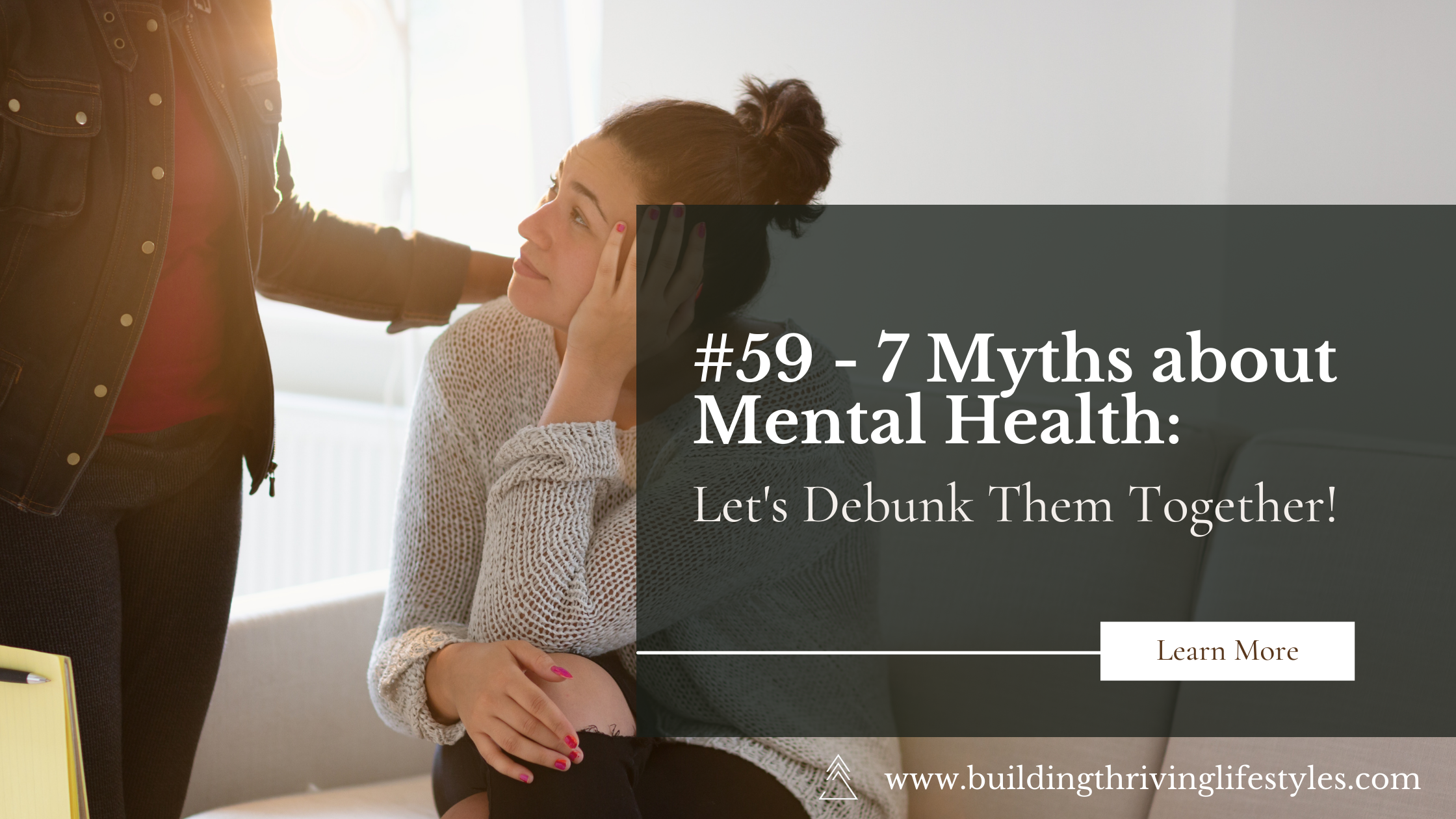#59 - 7 Myths about Mental Health: Let's Debunk Them Together!
Picture this, you have two people sitting in seperate rooms. Person 1 has a cold, they have been felling feverish for a few days, and now their breathing is feeling heavy. So they book an appointment with the GP and get looked at. Person number 2 is s feeling overwhelmed by a tidal wave of emotions. Life has been feeling like a slug fest, and the weight of all the thoughts and feelings feels unbearable, and yet, really hesitate to seek help. But why is that?
Why is it that most of us aren't comfortable with the idea of asking for help when we feel " off mentally but not when we feel off physically?
My best bet is that It’s because many of us have heard of myths and misconceptions about mental health & seeking help. And, today, I want to address the elephant in the room and debunk those myths, offer a safe space for understanding and encourage you to seek the support that you need & deserve.
Debunking Myths about Mental Health & Therapy
#1 Myth: "Therapy is only for 'crazy' or 'weak' people."
In reality, therapy is for anyone who needs support, guidance, or a safe space to explore their emotions and thoughts. Seeking therapy doesn't mean you're "crazy" or "weak"; it means you're taking a proactive step toward better mental health.
#2 Myth: "Mental health problems are a sign of personal failure."
Mental health conditions are not indicative of personal failure. They can affect anyone, regardless of their background, achievements, or strengths. Mental health is as important as physical health, and seeking help is a sign of strength, not weakness.
#3 Myth: "People with mental health conditions cannot work."
Contrary to this misconception, many individuals with mental health conditions excel in their careers. With the right support and treatment, they can lead fulfilling professional lives. Mental health conditions should not be a barrier to pursuing your goals and dreams.
#4 Myth: "Therapy is only for severe mental illness."
Therapy is not limited to severe cases; it's a valuable resource for managing a wide range of mental health challenges. Whether you're struggling with daily stress, relationship issues, or anxiety, therapy can provide valuable tools and strategies to improve your well-being.
#5 Myth: "Talking about your mental health makes you a burden."
Opening up about your mental health struggles doesn't burden others; it fosters connection and understanding. Sharing your feelings with trusted friends, family, or a therapist can lead to valuable support and emotional healing.
#6 Myth: "Mental health conditions are a phase; they'll go away on their own."
While some challenges may subside with time, ignoring persistent mental health symptoms can worsen the situation. Seeking professional help early can lead to faster recovery and better long-term outcomes.
#7 Myth: "Therapists have all the answers."
Therapists are trained professionals who can guide you on your journey to better mental health, but they don't have all the answers. They work collaboratively with you to explore your thoughts, feelings, and experiences, helping you discover your own solutions and coping strategies.
Seeking Help is a Brave Act
Now that you know these myths, it's time to challenge them. Remember this important truth, seeking therapy is not a sign of weakness or failure; it's an act of self-compassion and courage. You deserve support and understanding, just like anyone else.
As Brené Brown wisely said, "Vulnerability is not winning or losing; it's having the courage to show up and be seen when we have no control over the outcome." By seeking help, you're showing up, being seen, and taking control of your mental health journey.
Take the First Step
If you or someone you know is struggling with mental health challenges, we encourage you to seek professional help. Reach out to a therapist, counselor, or mental health provider who can offer guidance, support, and healing.
Subscribe to our newsletter for ongoing support, resources, and stories of resilience. Together, we can break down the barriers surrounding mental health and create a world where seeking help is seen as an act of strength and self-love.
Remember, seeking help is not just a choice; it's a brave and transformative step towards a brighter, healthier future.
Here for you, even if it seems dark….
Coach Eik

